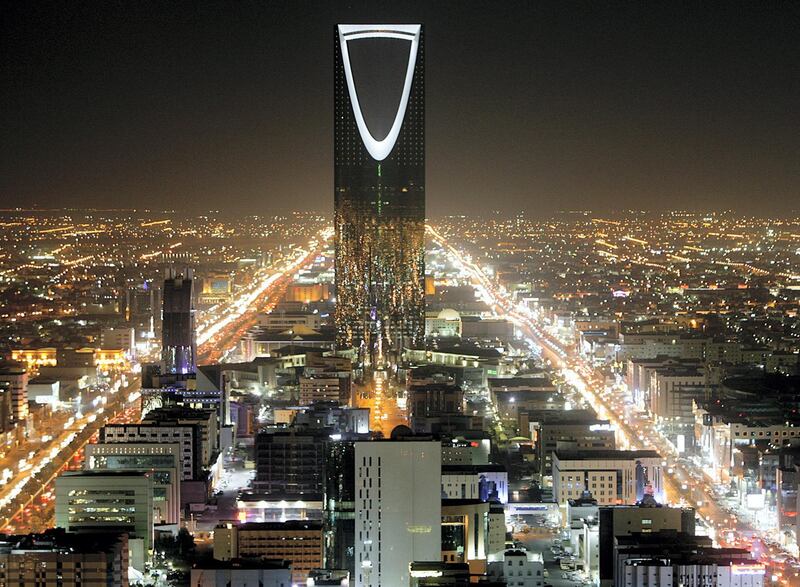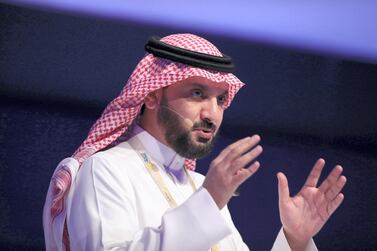Saudi Arabia will unveil its National Industrial Development and Logistics Program (NIDLP) on Monday as the kingdom hopes to lure 1.6 trillion riyals of foreign investment by 2030 into various industries, and its logistics, mining and energy sectors.
The latest event is part and parcel of the government's economic diversification plan which seeks to reduce its dependence on oil and cultivate new revenue streams by enhancing existing scions of the kingdom's business landscape while also developing new capabilities. The kingdom’s 33-year-old all-powerful crown prince Mohammad Bin Salman, the architect of the country’s economic overhaul agenda known as Vision 2030 will be centre stage on Monday at the Ritz Carlton as the government rolls out its plans to overhaul four strategic sectors.
The kingdom is focusing on increasing the contribution of its non-oil economy to gross domestic product by cultivating a local manufacturing industry and attracting foreign investment. The non-oil sector accounts for about 40 per cent of GDP at present. The collapse of oil prices in mid-2014 from a peak of $115 per barrel to lows of below $30 per barrel in 2016 accelerated the momentum to overhaul the economy. But even now with the oil price having recovered to hover around the $60 a barrel mark, and the kingdom increasing revenues and narrowing its fiscal deficit, the government is clearly unfazed about continuing the economic transformation of its economy.
Foreign direct investment and development of the kingdom's industrial and mining sectors are among the key pillars of Vision 2030. The government is rolling out the red carpet to accommodate NIDLP participants who will be granted a visa on arrival. Conference organizers have arranged separate investment prospectus for each sector and the international investors will be able to hold direct meetings with government officials and local company companies for possible partnerships of direct investments, according to an email from the conference chair and the kingdom's energy minister Khalid Al Falih.
Participants include top executives from international and regional industry giants that include Australian mining major Alcoa, steel titan Arcelormittal, Baker Hughes, Bechtel, Boeing and Lockheed Martin; China Petrochemical Corporation, Dow Chemicals, Port operator DP World, ExxonMobil, car manufacturers Ford Motor and Mitsubishi Corporation; industrial giant GE and oil major Halliburton.
Senior government ministers, local oil and gas, mining and transportation companies such as Aramco, Bahri and Maaden, along with representatives of government agencies responsible for handling foreign direct investment into the kingdom will also be present.
Mr Al Falih, who is chairing the day-long event, told Bloomberg some 70 investment deals might be struck.
“The central cornerstone of the Saudi economic transformation strategy surrounding Vision 2030 is to structurally change the operating model to make investment, not government-led oil spending, the engine of economic growth,” Ehsan Khoman, head of Middle East and North Africa research and strategy at Japan's largest lender MUFG Bank said.
The NIDLP programme "is a testament of the lengths and seriousness the Saudi authorities are willing to go in providing a credible level of clarity and forward guidance on their strategy to entice higher levels of foreign direct investment, enhance real GDP growth and to overall bolster investor confidence in the viability of the transformation programme.”
Under its Vision 2030 programme, Saudi Arabia has set the target of increasing foreign investment to 5.7 per cent of the country’s GDP from 3.8 per cent. Last year, FDI recorded a 127 per cent year-on-year growth, according to the Saudi Arabian General Investment Authority. The World Bank has ranked Saudi Arabia as the fourth-largest reformer within the G-20 in its latest Doing Business report.
Within the energy sector, the kingdom is offering investors the opportunity to be part of renewable energy strategy that will develop eight solar parks. It's also showcasing an energy manufacturing project that includes wind towers and wind turbine blades. In the logistics sector, the kingdom is keen on setting up car manufacturing plants and to develop logistics zones near major ports. It's also offering a concession to operate and maintain Mashaaer Metro Line and a manufacturing plant for train wheels, among other projects.
The industrial sector has the biggest number of opportunities for international investors that range from aerospace, to automotive, aquaculture, pharmaceuticals, chemicals and machinery and equipment. The kingdom is also keen to develop its mining and minerals sector and inviting international firms to invest in gold, zinc and copper prospecting besides investing in establishing and running steel and aluminium plants.
"The NIDLP is one of the 13 pillars of Vision 2030…and one of the most important points when it comes to economic prosperity, employment, to putting Saudi on the map of manufacturing and logistics [sectors]," Abdulla Al Zamil, chief executive of Zamil Industrial told The National. "We have all been waiting for the launch of the programme as a private sector and foreign investors, who can participate in the new Saudi economy, which will unlock the country's potential."
The kingdom, according to Mr Al Zamil, whose company has been in manufacturing for 45 years with operations in India, Vietnam and Egypt, “had silos in the past between logistics and manufacturing."
However, "the launch of the two initiatives together only proves that Saudi is looking at the manufacturing sector as a whole much more seriously than it did in the past. We want to be of global relevance and a force to be reckoned with.”







